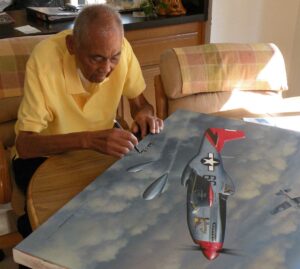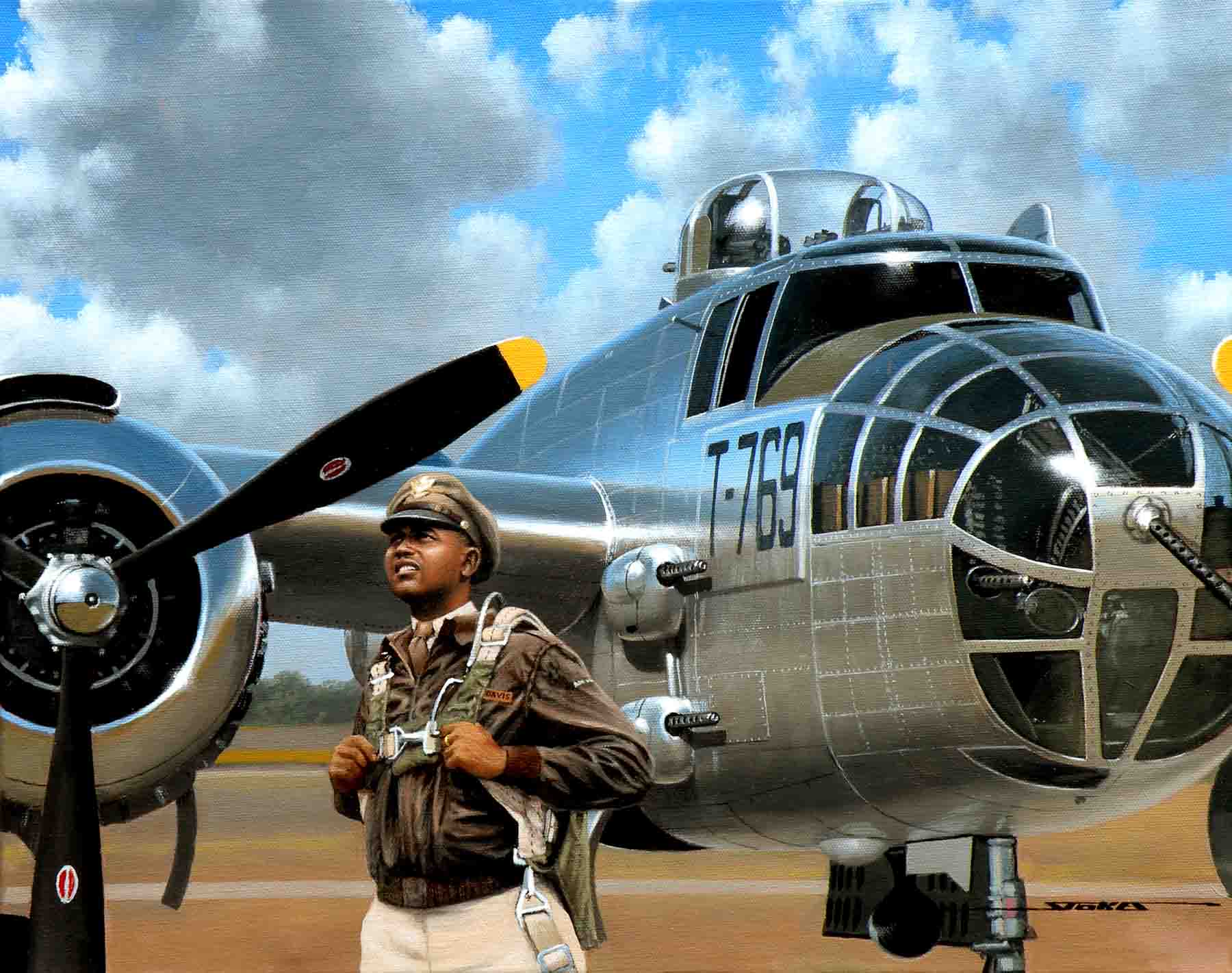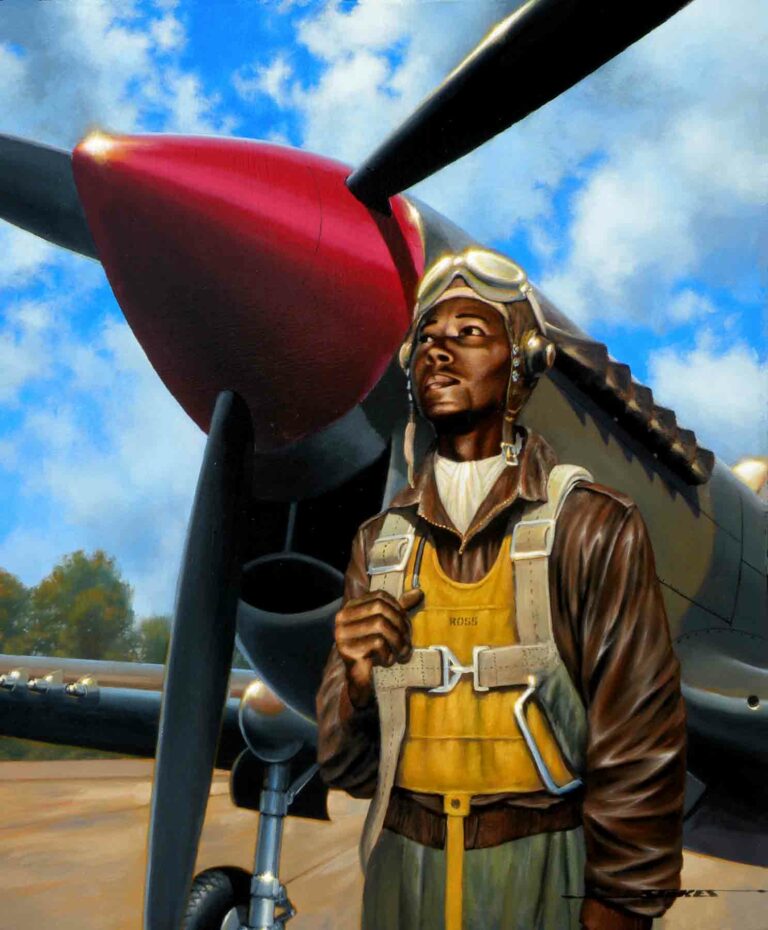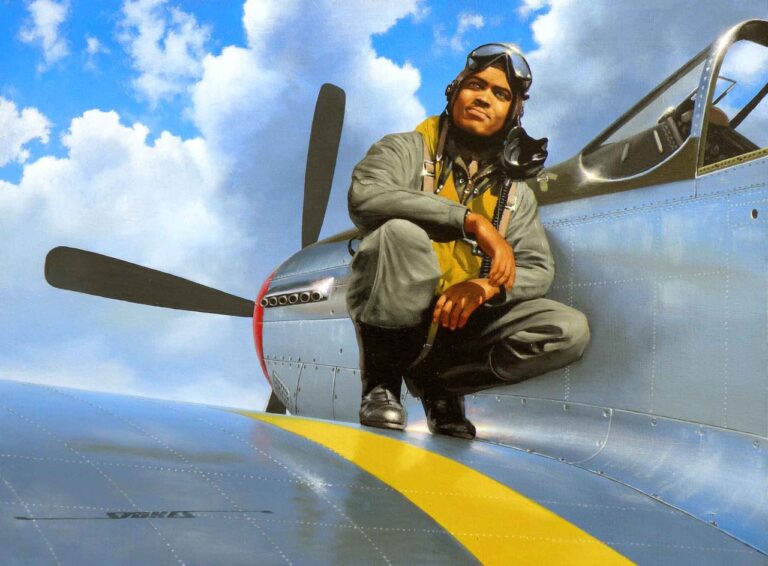Tuskegee Airman Claude Davis was a cadet in Class 44-GTE. Class 44-GTE translates into the seventh class of 1944 for twin-engine pilot training. Claude and the rest of the class were training to be B-25 Mitchell pilots and aircrew.
The first ten weeks of classes were considered “pre-flight.” This is when they learned about using the radio, basic meteorology, navigation, etc. Then came primary flight training where the cadets flew with their instructors in Stearman PT-17 biplanes or Fairchild PT-19 Cornells. Once the cadet had learned enough to show the instructor that they could safely take off, fly around a bit and then land the airplane, the instructor would allow them to fly solo.
Then they would go through basic training in the Vultee BT-13, learning how to fly a more complex airplane. In the BT-13, they would start making cross-country flights and learn some basic combat tactics.
The last step in the process was advanced training. For a twin-engine pilot, advanced training was in the Beechcraft AT-10, a twin-engine airplane made specifically for twin-engine instruction.
When they had successfully completed all of this flight training, they were introduced to the B-25 Mitchell bomber. For Claude Davis, this took place at Douglas Army Air base in Arizona. Claude loved the B-25. “That plane was great,” he recalled. “She was sweet – solid, easy to fly and very stable. We had to learn all about her – using oxygen in high altitudes, bombardment techniques, machine guns and so forth. It was great but really tough.”
All of Tuskegee’s twin-engine pilots and crews were now in the 477th Bombardment Group. The intent was to send the 477th into the Pacific War, but the war ended before they could deploy.
One great thing that all of this did was show 23-year-old Claude Davis that he could handle a B-25 with confidence. This confidence stayed with him the rest of his life, as it did with the rest of the 477th pilots.





